This week finds us drawing Wovember to a close. We are considering what the month has meant. To kick off our reflections, and to begin inviting yours in the comments, we are sharing this beautiful piece of writing by Barbara Kingsolver that celebrates wool’s interconnectedness with other parts of our lives… with seasons, with families, with crafting, with sheep, with our communities. We found the piece here and have illustrated it with photos featured in earlier Wovember posts.
It all starts with the weather. Comes a day when summer finally gives in to the faintest freshet of chill and a slim new light and just like that, you’re gone. Wild in love with the autumn proviso. You can see that the standing trees are all busy lighting themselves up ember-orange around the hemline, starting their ritual drama of slow self-immolation — oh, well, you see it all. The honkling chain gang of boastful geese overhead that are fleeing warmward-ho, chuckling over their big escape. But not you. One more time, here for the duration, you will stick it out. Through the famously appley wood-smoked season that opens all hearts’ doors into kitchen industry and soup on the stove, the signs wink at you from everywhere: sticks of kindling in the fire, long white brushstrokes of snow on the branches, this is the whole world calling you to take up your paired swords against the brace of the oncoming freeze. The two-plied strands of your chromosomes have been spun by all thin-skinned creatures for all of time, and now they offer you no more bottomless thrill than the point-nosed plow of preparedness. It begins on the morning you see your children’s bare feet swinging under the table while they eat their cereal cold and you shudder from stem to stern like a dog hauling up from the lake, but you can’t throw off the clammy pall of those little pink-palmy feet. You will swaddle your children in wool, in spite of themselves.
It starts with a craving to fill the long evening downslant. There will be whole wide days of watching winter drag her skirts across the mud-yard from east to west, going nowhere. You will want to nail down all these wadded handfuls of time, to stick-pin them to the blocking board, frame them on a twenty-four-stitch gauge. Ten to the inch, ten rows to the hour, straggling trellises of days held fast in the acreage of a shawl. Time by this means will be domesticated and cannot run away. You pick up sticks because time is just asking for it, already lost before it arrives, scattering trails of leavings. The frightful movie your family has chosen for Friday night, just for instance. They insist it will be watched, and so with just the one lamp turned on at the end of the sofa you can be there too, keeping your hands busy and your eyeshades half drawn. Yes, people will be murdered, cars will be wrecked, and you will come through in one piece, plus a pair of mittens. It’s all the same wherever you go — the river is rife with doldrums and eddies, the waiting room, the plane, the train, the learned lecture, the meeting. Oh, sweet mother of Christ, the meeting. The PTA the town council the school board the bored-board, the interminably haggled items of the agenda. Your feet want to run for their lives, but your fingers know to dig in the bag and unsheathe their handy stays against impatience, the smooth paired oars, the sturdy lifeboat of yarn. This giant unwieldy meeting may bottom-drag and list on its keel, stranded in the Sargasso Sea of Agenda, but you alone will sail away on your thrifty raft of unwasted time. You alone are swaddling the world in wool.
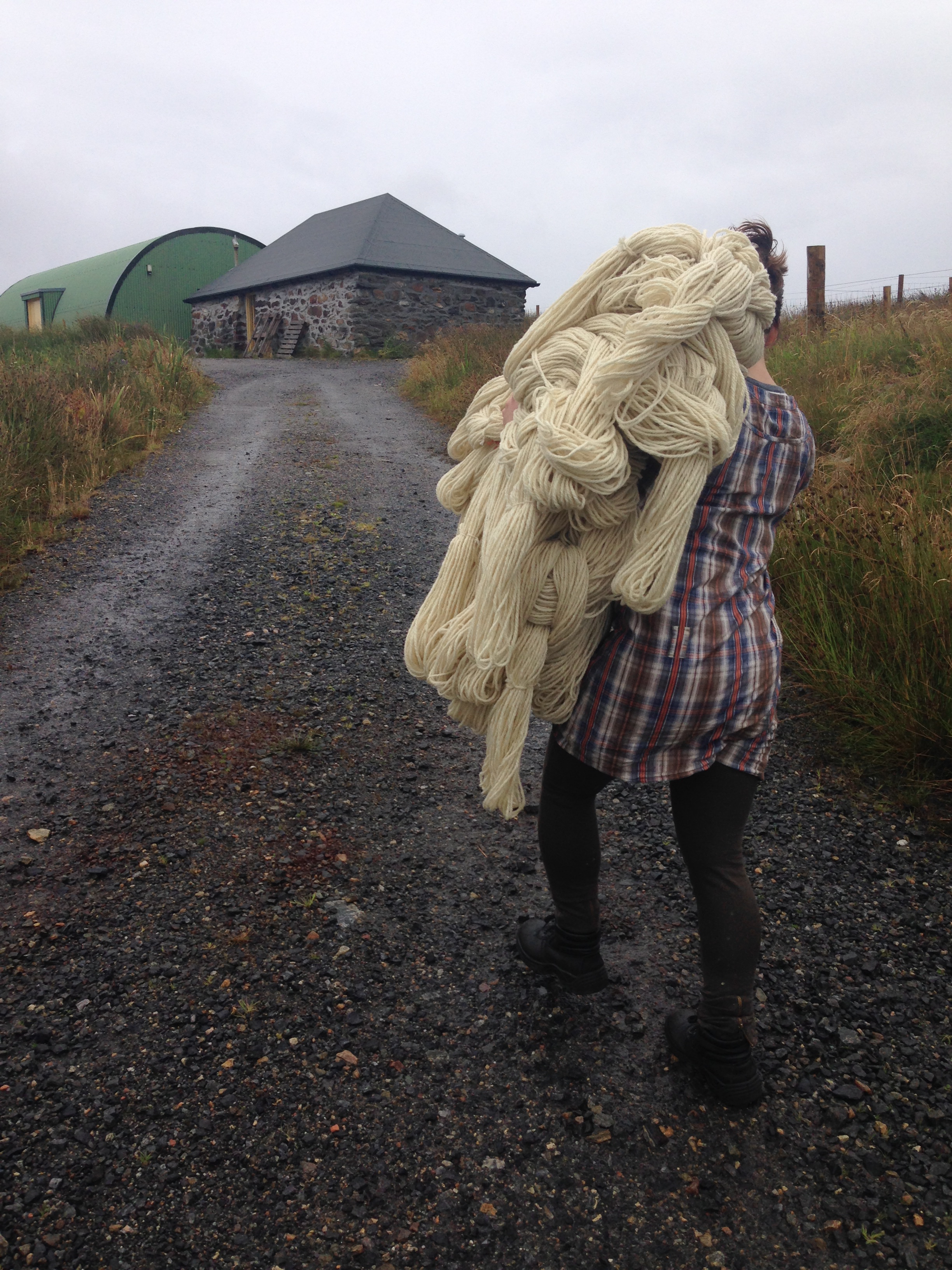
Strangely, it also begins with the opposite: a hankering to lose time and all sense of purpose. To banish all possibilities, the winter and the summer, the bare feet under the table, the shattered day undone and dregs of old regard and bitter unsettled tea leaves and the words forever jostling ahead of each other in line, queuing up to be written. Especially those. Words that drub, drub, drub at the skull’s concave inner wall. Words that are birds in a linear flock, pelting themselves in ruined fury all night long against the windowpane. Nothing can stop the words so well as the mute alphabet of knit and purl. The curl of your cupped hand scoops up long drinks of calm. The rhythm you find is from down inside, rocking cradle, heartbeat, ocean. Waves on a rockless shore.
Sometimes it starts terribly. With the injury or the accident or the wrecked life flung down like an armload of broken chair legs on your doorstep. Here lies the recuperation, whose miles you can’t even see across, let alone traverse. Devil chasm of woe uncrossable by any known bridge. And in comes the friend bearing needles of blond bamboo — twin shafts of light! — and ombre skeins in graded shades that march through the stages of grief, burnt umber to ochre to gold to dandelion. She is not in a listening mood, the friend. Today she commands you to make something of all this. And to your broken heart’s surprise, you do.
It begins with the circle of friends. There is always something beyond your beyond, the aged parents and teenager who crack up the family cars on the selfsame day, the bone-picked divorce, the winter of chemo, the gorgeous mistake, the long unraveling misery that needs company, reading glasses and glasses of wine and all the chairs pulled into the living room. Project bags bulge like sacks of oranges, ripe for beginning. Cast on, knit two together girlfriendwise. Rip it, pick up the pieces where you can, along the headless yoke or scandalously loose button placket, pick up and knit. Always, you will have to keep two projects going: first, the no-brainer stockinette that can run on cruise control when the talk is delicious. And the other one, the brainer, a maddening intarsia or fussy fair-isle you’ll save for the day when the chat gets less interesting, though really it never does. Knitting only makes the talk go softer, as long as it needs to be, fondly ribbed and yarned-over, loosely structured or not at all, with embellishment on every edge. Laughter makes dropped stitches.
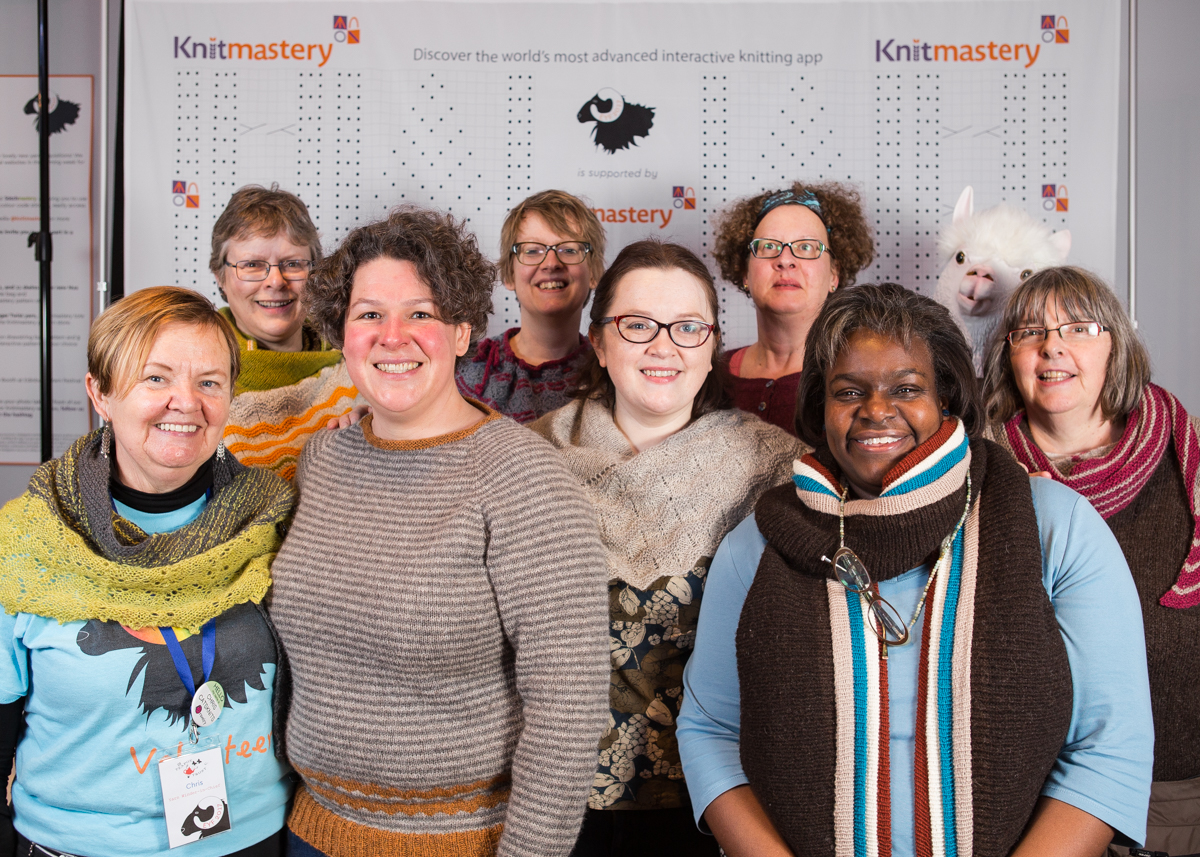
It begins with a pattern. The arresting helical twist of a double cable, a gusset, a hexagon, a spiral, a fractal, an openwork ladder, an aran braid, a chevron and leaf, the eyes of the lynx, the traveling vines. The mimsy camisole you arguably could live without, the munificent cardigan you need. A mitten lost in childhood, returned to you in a dream. A pattern in a magazine, devised of course to tantalize. More embarrassing yet, the pattern hallooing from your neighbor’s sweater while you’re only trying for small talk, distracting you until finally you have to stop, apologize, and ask permission to stare and memorize the lay of her sweater’s land. And once it all starts, there’s no stopping. The frame of your four double-points is a sturdy raised bed from which you cultivate the lively apical stem of sock-sleeve-stocking-cap. It’s all in the growing. From the seed of pattern, the cotyledons of cast-on, everything rises: xylem and phloem of knit-purl ribs, a trunk of body and branches of sleeves, the skirt that bells downward daffodilwise. You with your needles are god of this wild botany. It begins the first time you take the familiar map in hand, scowling it over with all best intentions, then throw it over your shoulder and head out to uncharted waters where there be monsters. Only there will you ever discover the promised land of garments heretofore undevised. Gloves for the extra long of hand, or short, or the firecracker nephew with one digit missing in action. Sweaters for the short-waisted, the broad-shouldered, the precise petite. Soon they are lining up, friends and family all covetous of the bespoke, because your best beloveds are human after all, and not off-the-rack. You can envelop each of them in the bliss of a perfect fit.
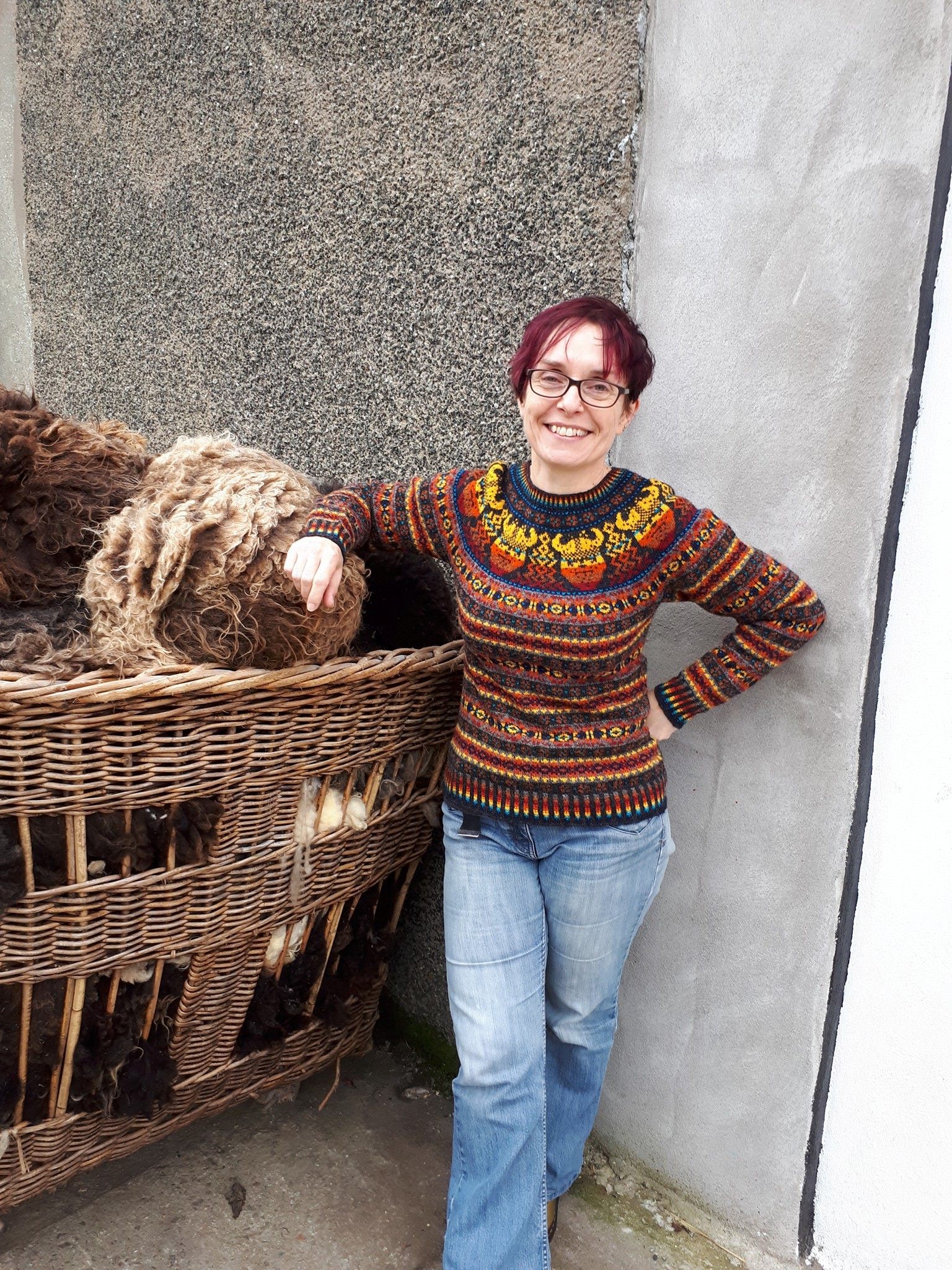
And a perfect color. It starts there too. Every eye has hungers all its own. The particular green-silver of leaves overturned by the oncoming storm. An alkaline desert’s russet bronze, a mustard of Appalachian spring, some bright spectral intangible you find you long to possess. Colors are fertilized in-vitro with the careful spoon and the potent powder weighed to the iota, and born by baptism in the big dye kettle hauled onto the stove. Flaccid beige hanks backstroke listlessly in the boiling ink, waiting to be born again, until some perfect storm of chemical zeal moves them suddenly to awaken and drink down all the dye molecules in a trice. Like a miracle, the dark liquid goes clear as water before your very eyes. Afterward the damp yarn sings its good news from dripping loops in the laundry room, waiting to meet the pattern the wish the cool weather the living room the days-long patient fortune.
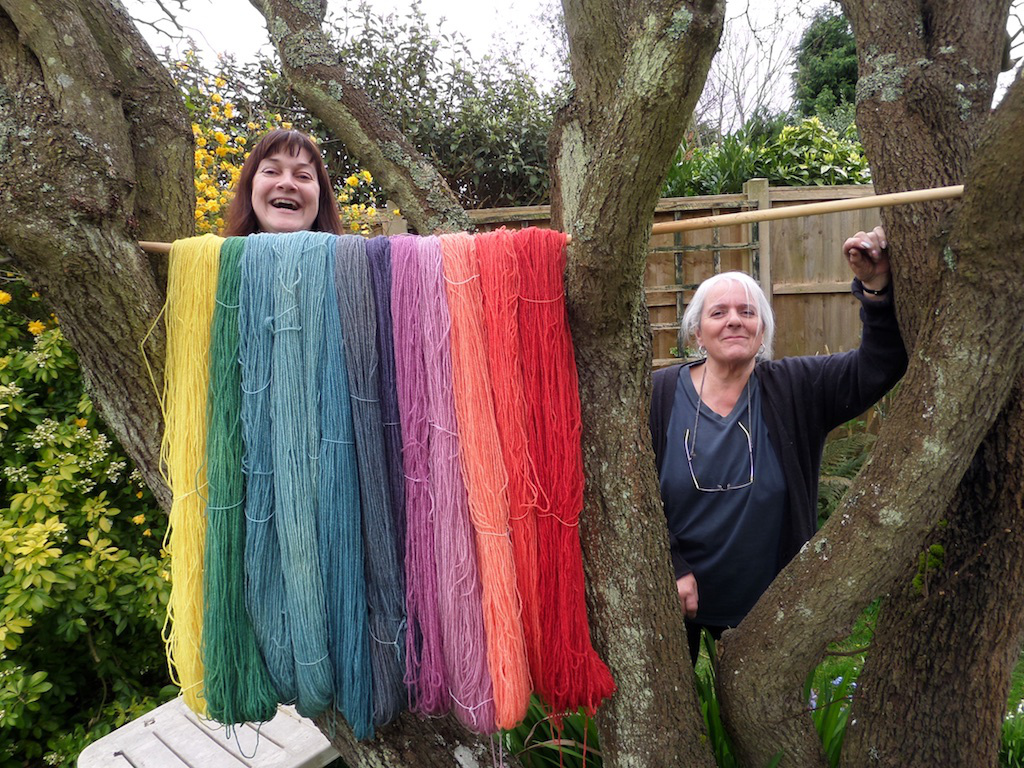
It starts with a texture. There are nowhere near enough words for this, but fingers can sing whole arpeggios at a touch. Textures have their family trees: cloud and thistledown are cousin to catpelt and earlobe and infantscalp. Petal is also a texture, and limepeel and nickelback and nettle and five-o’clock-shadow and sandstone and ash and soap and slither. Drape is the child of loft and crimp; wool is a stalwart crone who remembers everything, while emptyhead white-haired cotton forgets. And in spite of their various natures, all these strings can be lured to sit down together and play a fiber concerto whole in the cloth. The virgin fleece of an April lamb can be blended and spun with the fleece of a fat blue hare or a twist of flax, anything, you name it, silkworm floss or twiny bamboo. Creatures never known to converse in nature can be introduced and then married right on the spot. The spindle is your altar, you are the matchmaker, steady on the treadle, fingers plying the helices of a beast and its unlikely kin, animal and vegetable, devising your new and surprisingly peaceable kingdoms. Fingers can coax and read and speak, they have their own secret libraries and illicit affairs and conventions. Twined into the wool of a hearty ewe on shearing day, hands can read the history of her winter: how many snows, how barren or sweet her mangers. For best results, stand in the pasture and throw your arms around her.
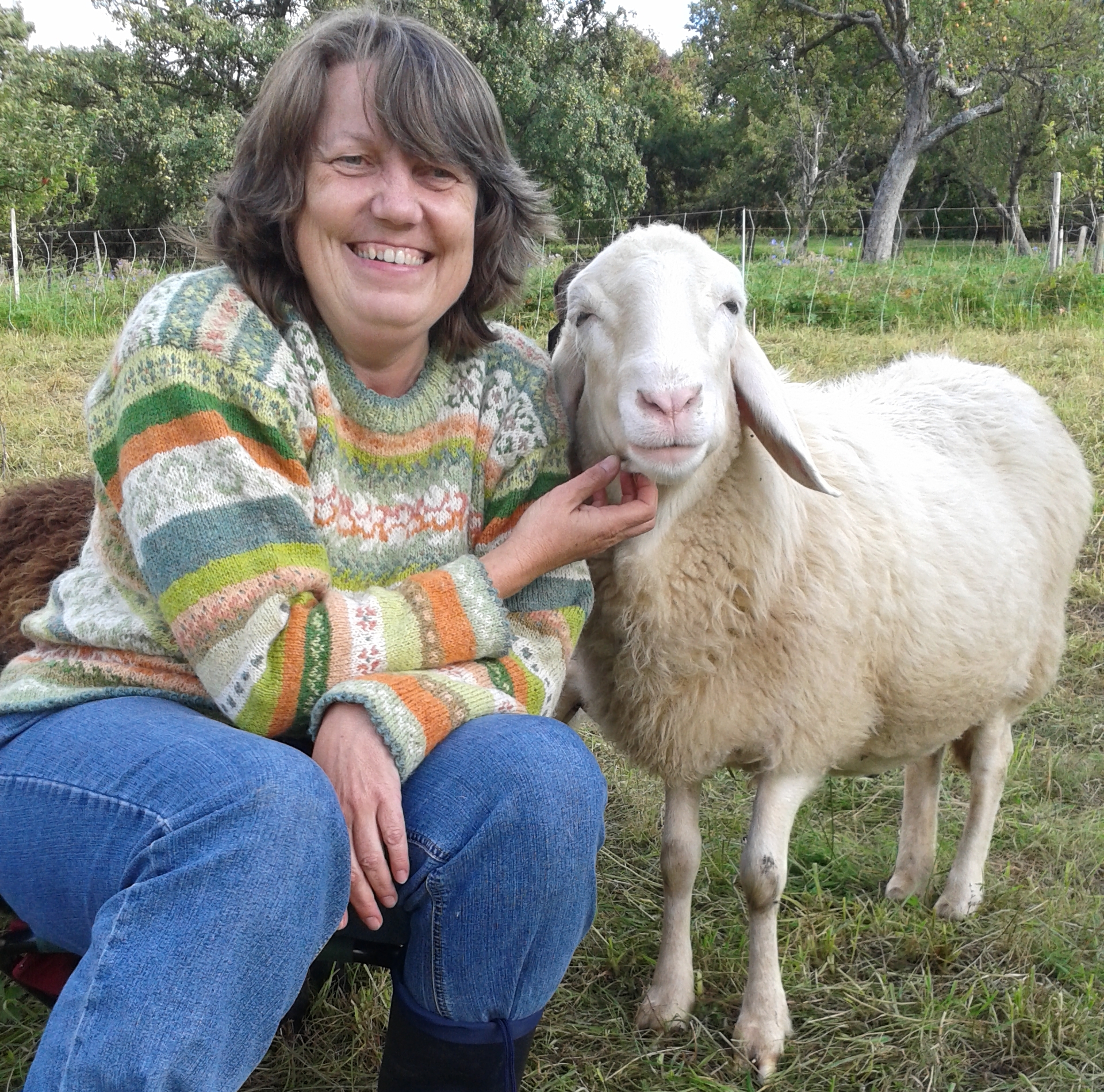
Because, really, it does start there, in the barn on shearing day. The circle of friends again, assembled for shearing and skirting. One whole fleece, shorn all of a piece, is flung out on a table like a picnic blanket, surrounded by women. All hands point toward the center like an excessive, introverted clock, the better for combing the white fleece with all those fingers; combing the black, fingers can see in the dark to pull out twigs and manure tags and cockleburs. White fleeces shaken free of second cuts, rolled and bundled and stacked, ready for spinning, look for all the world like loaves of bread on a bakery shelf, or sheaves of grain or any other money in the bank. The universal currency of a planet where people grow cold. On shearing day all ledgers will be balanced, the sheep lined up in the gates are woolly by morning and naked by night, as the barrows fill and the spindles make ready and warmth is bankrolled in futures. Six women can skirt a fleece in ten minutes, just enough time to run and collect the next one, so long as the shearer is handy. It starts early, this day, and goes long.
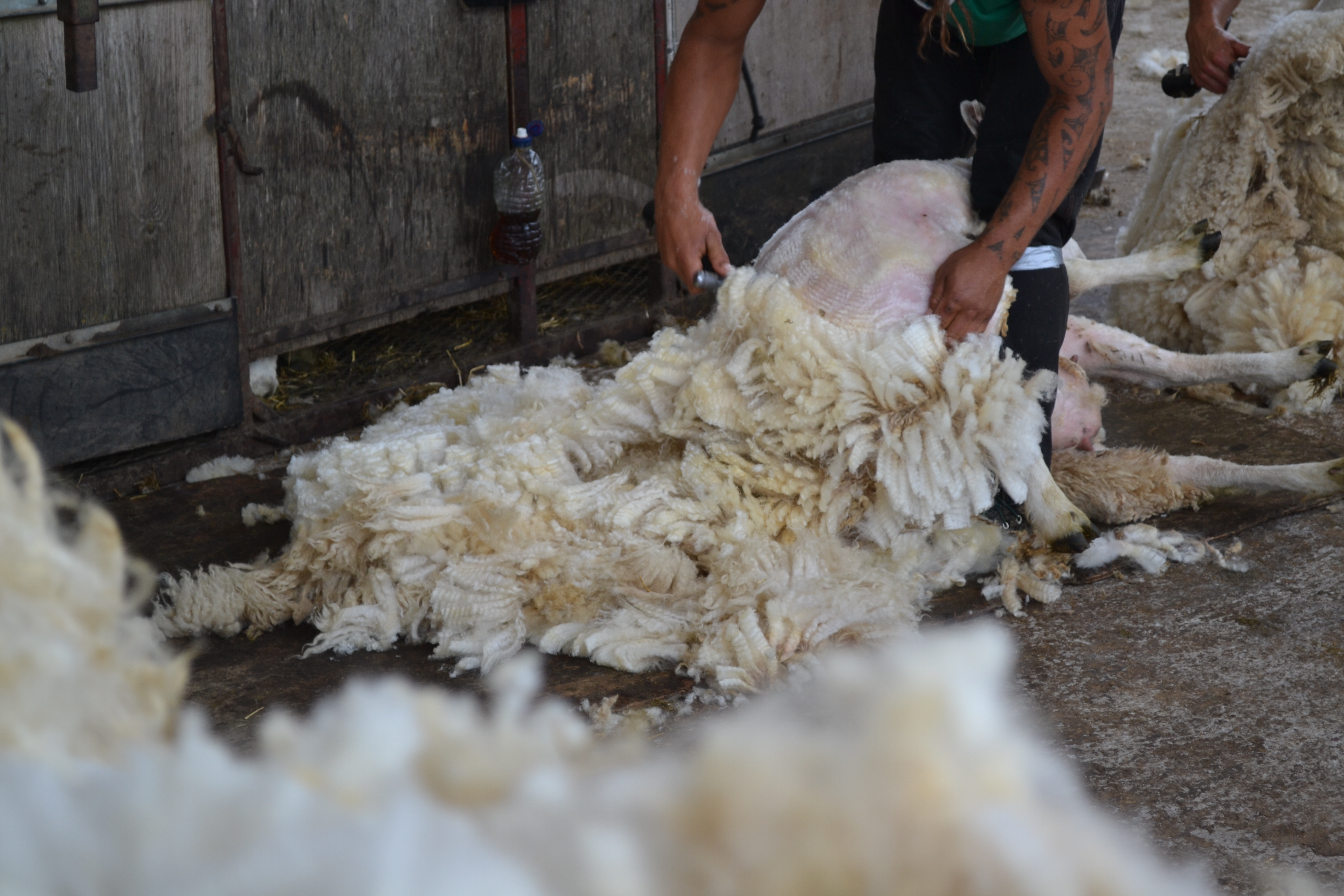
It starts in the barn on other days too, every morning of the year, in fact. The sheep are both eager and wary at the sight of you, the bringer of hay, the reaper of wool, as you enter the barn for the daily accounts. You switch on the overhead bulb and inhale the florid scents of sweet feed and hay and mineral urine and there they stand all eyeing you with horizontal pupils, reliably here for every occasion, the blizzard nights and early spring mornings of lambing. You hurry out at dawn to find dumbfounded mothers of twins licking their wispy trembling slips of children, exhorting them to look alive in the guttural chortle that only comes into the throat of a ewe when she’s just given birth. The sloe-eyed flock mistrusts you fundamentally, but still they will all come running when you shake the exquisite bucket of grain, the money that talks to yearlings and chary wethers alike, and loudest of all to the ravenous barrel-round pregnant ewes. They gallop home with their udders tolling like church bells. In all weather you take their measure and send them out again to the pasture. And oh, how willingly they return to their posts, with their gentle gear-grinding jaws and slowly thickening wool under winter’s advance, beginning your sweater for you at the true starting gate.
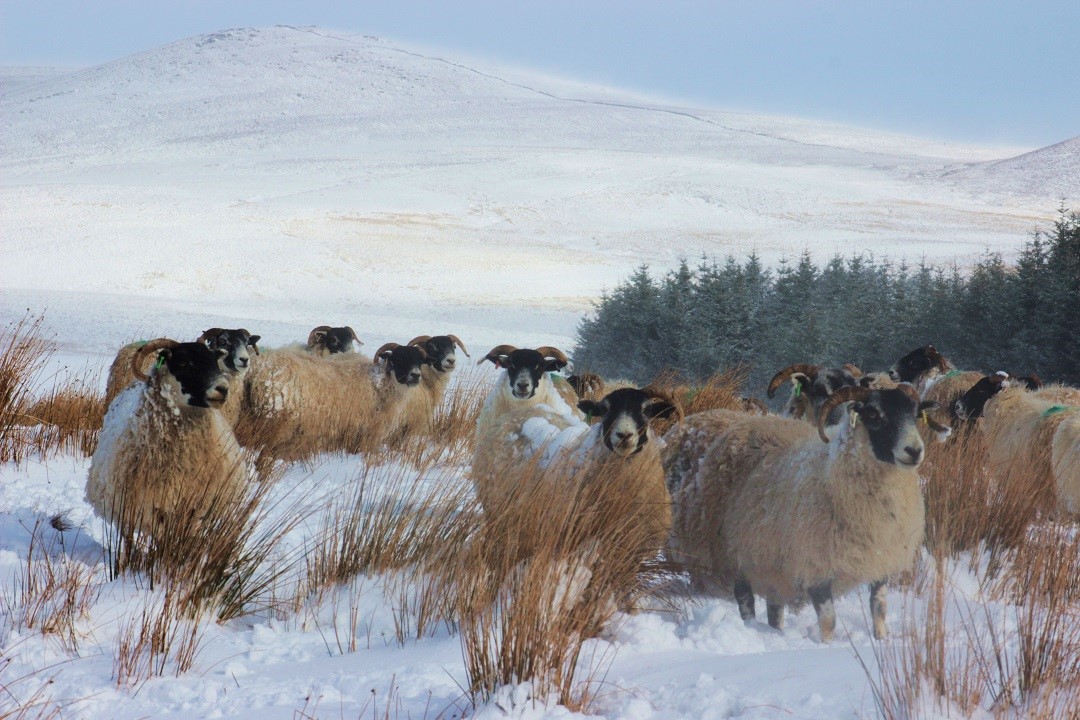
Everything starts, of course, with the sheep and the grass. Beneath her greening scalp the earth frets and dreams, and knits herself wordless. Between her breasts, on all hillsides too steep for the plow, the sheep place little sharp feet on invisible paths and lead their curly-haired sons and daughters out onto the tart green blades of eternal breakfast. It starts on tumbled-up lambspring mornings when you slide open the heavy barn door and expel the pronking gambol of newborn wildhooray into daylight. And in summer haze when they scramble up onto boulders and scan the horizon with eyes made to fit it just-so, horizontal eyes, flattened to that shape by the legions of distant skulking predators avoided for all of time. And in the gloaming, when the ewes high up on the pasture suddenly raise their heads at the sight of you, conceding to come down as a throng in their rocking-horse gait, surrendering under dog-press to the barn-tendered mercy of nightfall. It starts where everything starts, with the weather. The muffleblind snows, the dingle springs, the singular pursuit of cud, the fibrous alchemy of the herd spinning grass into wool. This is all your business. Hands plunged into a froth of yarn are as helpless as hands thrust into a lover’s hair, for they are divining the grass-pelt life of everything: the world. The sunshine, heavenly photosynthetic host, sweet leaves of grass all singing the fingers electric that tingle to brace the coming winter, charged by the plied double helices of all creatures that have prepared and justly survived on the firmament of patience and swaddled children. It’s all of a piece. All one thing.
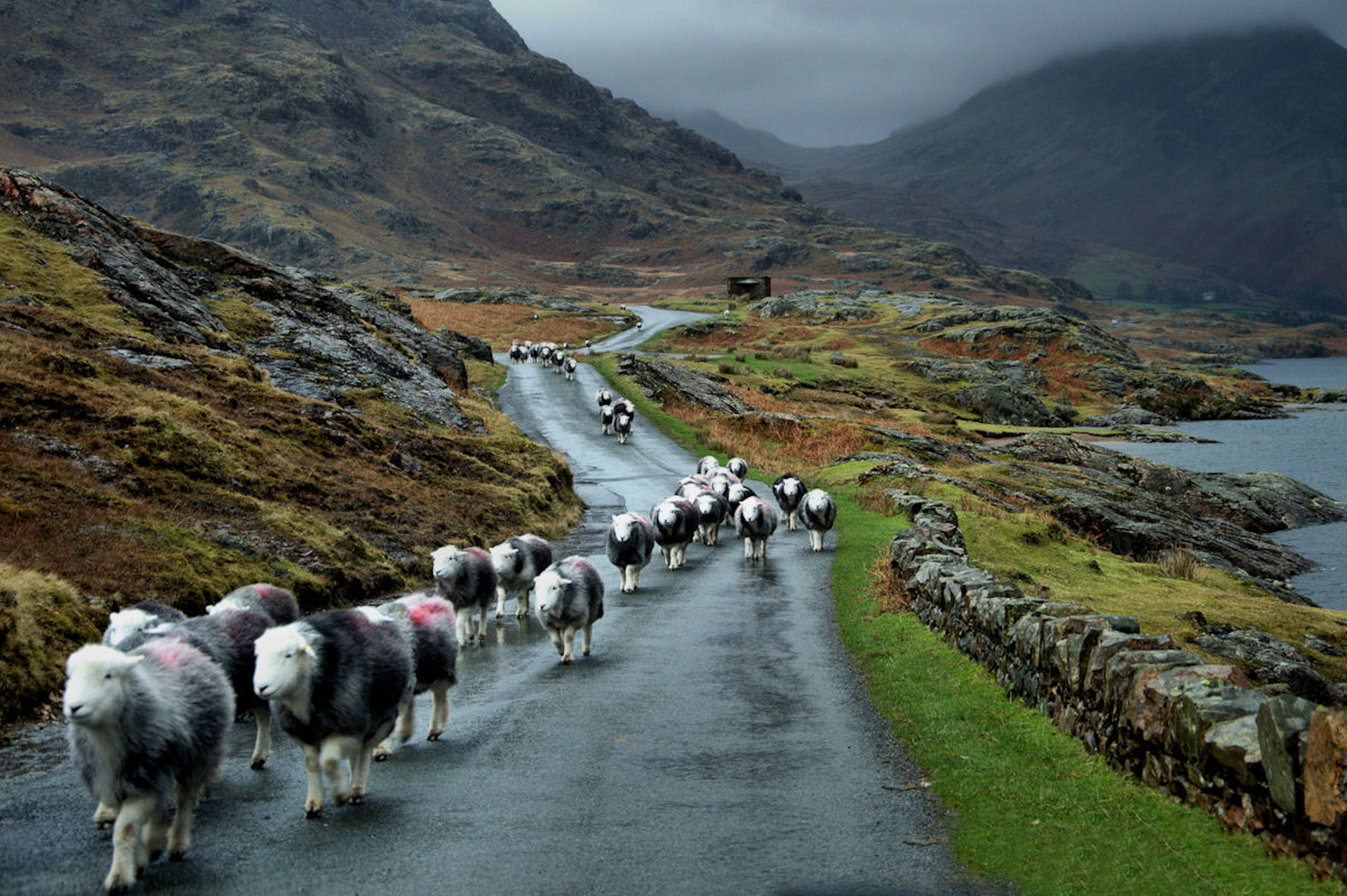
Barbara Kingsolver was born in 1955 in Annapolis, Maryland, and grew up in rural Kentucky. She counts among her most important early influences: the Bookmobile, a large family vegetable garden, the surrounding fields and woods, and parents who were tolerant of nature study (anything but snakes and mice could be kept in the house), but intolerant of TV. Her most recent books include The Lacuna (2009), and Animal, Vegetable, Miracle: A Year of Food Life (2007). Her books have been translated into more than two dozen languages, and have been adopted into the core literature curriculum in high schools and colleges throughout the United States. She has contributed to more than fifty literary anthologies. Kingsolver was named one the most important writers of the 20th Century by Writers Digest. In 2000 she received the National Humanities Medal, the highest honor for service through the arts in the United States. All images © their creators and featured previously on the Wovember blog
